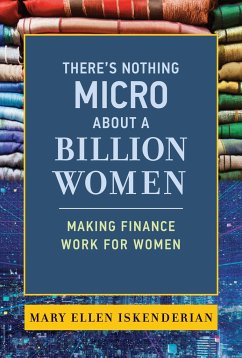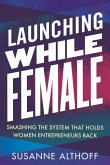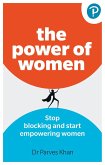Why it takes more than microloans to empower women and promote sustainable, inclusive economic growth. Nearly one billion women have been completely excluded from the formal financial system. Without even a bank account in their own names, they lack the basic services that most of us take for granted—secure ways to save money, pay bills, and get credit. Exclusion from the formal financial system means they are economic outsiders, unable to benefit from, or contribute to, economic growth. Microfinance has been hailed as an economic lifeline for women in developing countries—but, as Mary Ellen Iskenderian shows in this book, it takes more than microloans to empower women and promote sustainable, inclusive economic growth. Iskenderian, who leads a nonprofit that works to give women access to the financial system, argues that the banking industry should view these one billion “unbanked” women not as charity cases but as a business opportunity: a lucrative new market of small business owners, heads of households, and purchasers of financial products and services. Iskenderian shows how financial inclusion can be transformative for the lives of women in developing countries, describing, among other things, the informal moneylenders and savings clubs that women have relied on, the need for both financial and digital literacy (and access) as mobile phones become a means of banking, and the importance of women’s property rights. She goes on to make the business case for financial inclusion, exploring the ways that financial institutions are adapting to help women build wealth, access capital, and manage risks. Banks can do the right thing—and make money while doing so—and all of us can benefit.
Hinweis: Dieser Artikel kann nur an eine deutsche Lieferadresse ausgeliefert werden.
Hinweis: Dieser Artikel kann nur an eine deutsche Lieferadresse ausgeliefert werden.








